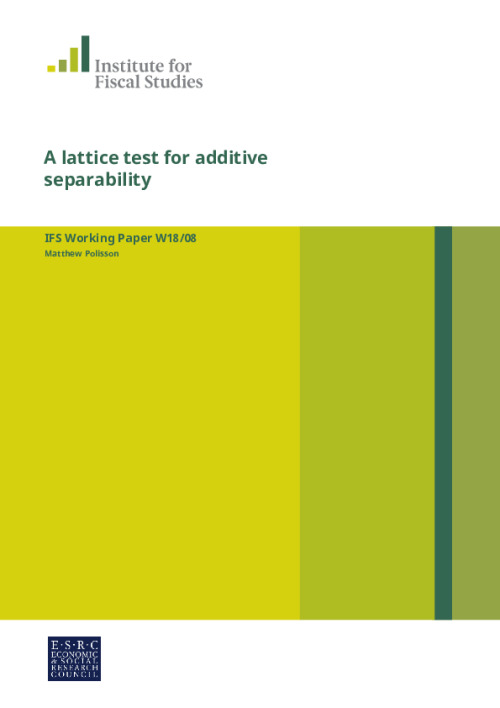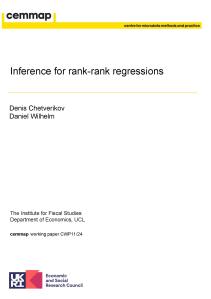Downloads

WP201808.pdf
PDF | 743.94 KB
We derive necessary and sufficient conditions for a finite data set of price and demand observations to be consistent with an additively separable preference. We do so without imposing concavity on any of the subutility functions or convexity of the budget set a priori, thereby generalizing earlier results. Our simple and intuitive lattice test easily accommodates departures from rationality, or errors, which subsequently facilitates a rich empirical analysis. We apply our econometric techniques to the food consumption of a panel of British households. The primary empirical finding is that additive separability has considerable success in explaining the data.
Authors

Research Associate University of Leicester
Professor of Economics at the University of Leicester. His research interests are in applied microeconomics and microeconomic theory.
Working Paper details
- DOI
- 10.1920/wp.ifs.2018.W1808
- Publisher
- The IFS
Suggested citation
Polisson, M. (2018). A lattice test for additive separability. London: The IFS. Available at: https://ifs.org.uk/publications/lattice-test-additive-separability (accessed: 30 June 2024).
More from IFS
Understand this issue

Gender norms, violence and adolescent girls’ trajectories: Evidence from India
24 October 2022

What are the challenges in getting debt on a falling path?
28 June 2024

Election Special: Your questions answered
27 June 2024
Policy analysis

IFS Deputy Director Carl Emmerson appointed to the UK Statistics Authority Methodological Assurance Review Panel
14 April 2023

ABC of SV: Limited Information Likelihood Inference in Stochastic Volatility Jump-Diffusion Models
We develop novel methods for estimation and filtering of continuous-time models with stochastic volatility and jumps using so-called Approximate Bayesian Compu- tation which build likelihoods based on limited information.
12 August 2014

Is there really an NHS productivity crisis?
17 November 2023
Academic research

Inference for rank-rank regressions
28 May 2024

Sample composition and representativeness on Understanding Society
2 February 2024

The impact of labour demand shocks when occupational labour supplies are heterogeneous
28 June 2024